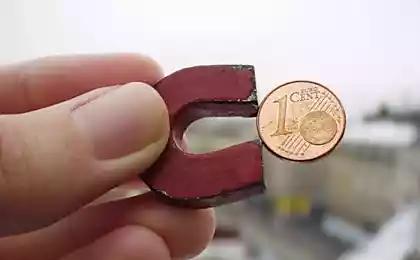278
How to make a lot of money, getting high from life
But now I'm older and I'm starting to think differently. I learned that hard work is not always the right path to success. Sometimes you have to work less to get the best results.
Take, for example, a small business owner who always works non-stop. He has a million competitors, and he knows that time is a limited resource. An entrepreneur can work 24 hours a day 7 days a week, but often he has a competitor who just has more money. He assembles a large team, devotes some time to it - and bypasses our workaholic in a few months.

It's different. Facebook bought Instagram when it had just 13 people working on it for a billion dollars. Snapchat, a young startup with a team of 30 people, refused to sell to Facebook and Google. Yes, a lot of their success is based on luck, and the nostalgic that these companies stand on is efficiency.
The key to success is not hard work, but smart work. There is a big difference between being busy and being productive. To be effective, you need to learn to manage not time, but internal energy.
It should be your life's work. We need to learn to spend the minimum amount of energy for the maximum benefit.
Trying to prioritize, learning how to live efficiently and with pleasure is a real challenge for yourself. But in just a few months, I learned to work not 80 hours a week, as before, but only 40, and I manage to do a lot more work. This is the case when less means more.
Here are 7 things to stop doing if you want to live your life with meaning and pleasure.
1. Stop working overtime. Have you ever wondered where you would be if you worked only 40 hours a week? In 1926, Henry Ford, an American industrialist and founder of the Ford Motor Company, conducted a series of experiments on his employees and obtained amazing results: if you reduce the number of working hours from 10 to 8, and the working week from 6 to 5 days, you can produce even more industrial products! Shorter working hours are more than compensated by increased productivity!
The more you work, the less efficient and productive you become in the long run.
Here is a quote from a report by The Business Roundtable published in the 1980s:
If the schedule provides for 60 or more working hours per week, and this lasts longer than two months, then the cumulative effect of lower employee productivity leads to the fact that fewer products are produced than with a 40-hour work week. AlterNet editor Sarah Robinson cites a study by the U.S. military that found that “losing one hour of sleep per night for a week causes the same level of cognitive degradation as if you were seriously drunk.” The problem is that for drunkenness at work you will probably be fired, and for lack of sleep - hardly.
If you sleep an hour less than you need, it is unlikely that you will feel happy and happy with life. Most likely, today you have a bad mood - this is a normal consequence of overwork.
People who work hard and sleep little lose the ability to act proactively, cease to control their impulses, become irritated and indifferent.
The next time you think about why you’re so unproductive and why life is so hard, remember that 70% of the people on the planet don’t get enough sleep.
Leonardo da Vinci did not sleep much at night, but preferred to nap several times a day. Napoleon went to bed every day in the middle of the day. American inventor Thomas Edison also went to bed for an hour or two after lunch. Eleanor Roosevelt, wife of President Franklin Roosevelt, went to bed before important public appearances. President John F. Kennedy spent nearly every lunch break in bed. And the oil industrialist and philanthropist John Rockefeller had a habit of regularly napping in his office. Winston Churchill believed that an afternoon nap allowed him to “do twice as many things.”
After I took care of myself to get 7-8 hours of sleep every day, I immediately noticed a change. It turns out you can do more in an 8-hour day than in a 16-hour day!
2. Don't say yes too often. Remember the Pareto Principle: 20% of efforts produce 80% of results. However, the remaining 20% of the results will have to spend 80% of the effort.
Instead of trying to work harder and harder, you should focus only on those efforts that bring 80% of the result. And give up everyone else.
You will have more time to focus on the most important tasks. We need to stop saying yes to tasks that have little impact on our lives.
The difference between successful and very successful people is that very successful people almost always say no. Warren Buffett. The question arises: how to consciously answer “yes” or “no”? If you can’t figure out what’s worth your time and what’s not, do a simple split test. Write down everything you do throughout the day and constantly look for ways to optimize each process.
Most of us say yes more often than we should. No one wants to be a bad guy. You have to suffer and act at your own expense.
To get rid of this habit, there is one simple trick. That's the 20 seconds rule. The next time you want to put another task on your to-do list, spend 20 seconds mentally trying to find an excuse for not doing it. Make a list of 2-3 reasons not to do this. If you can, forget about it. It's not worth your effort.
Take the time and effort to form the habit of not grasping at all the things life offers you to do. The less unnecessary things we do, the more energy we will have to change our lives for the better.
3. Stop doing everything yourself; let other people help you. I tried to do it myself once. But it burned out quickly. And then I was surprised to find that some people can do my job better than I can! And then I understood the power of community and things like "user content."
Consumers know and understand what they want better than any marketer. Did you know that on the same YouTube, videos posted by users collect a total of 10 times more views than videos made by professionals? If Americans want to learn something about a brand, 51% of them start searching online for user reviews. And only 14% use the media for this, and 16% go to the brand’s website.
It is important to find the strength to seek help when needed. We can't do everything ourselves. Along the way, transfer to others boring and uninteresting work for you - whenever possible. If you can afford it, hire a cleaner instead of spending all Saturdays licking your apartment. Buy a dishwasher. Pay your bills online.
4. Stop being a perfectionist. Perfectionism reduces your productivity. Dr. Simon Sherry, a professor of psychology at Dalhousie University, has done research on this topic and proved that the more demands you make on yourself and your work, the less convincing your results are.
Here are the typical problems of perfectionists: They spend more time on the task than it takes.
- They constantly put off work and wait for the “right moment” to take it.
- They focus too much on the little things and miss the big picture.
- They forget that the perfect moment to start living “for real” is NOW.
5. Automate repetitive tasks. According to a study conducted by Tethys Solutions, if you spend 30% of your time on repetitive tasks, your productivity drops by 15% every two months. If you do something more than five times a week, try automating it. I write mini-programs for myself in Python.
But there are ways for “ordinary people.” Automation services are a great variety, and to find what you need, you can Google a little. Use HootSuite to plan social media posts. Automate most routine processes on the Internet with IFTTT. The same is true for Do Button, Do Camera and Do Note. Make payments for utilities, mobile communications and the Internet “regular” in the personal account of your Internet Bank. If you can’t learn it yourself, use the services of experts.
6. Stop guessing. Do experiments and measure everything you can measure. To optimize your life and maximize your potential, keep experimenting. What time of day do you work best? When do you need to go to bed to feel your best? Should we spend Sunday doing nothing?
Did you know that people are most often distracted from work at 4 p.m.? This random fact was revealed by Robert Matchhawk, an assistant professor of psychology at Pennsylvania State University. If you can’t get all the data you need on your own, Google it. Most of these questions can be answered online.
Keep asking yourself the same question: Can you measure and optimize everything you do?
7. Stop working if you are not working. Most people don’t realize that if you sit in front of a monitor and don’t do anything stupidly, you just need to do something fundamentally different. Getting out of work on time is very important. And even more importantly, switch to a task that you could do more efficiently than the one on your schedule.
Another mistake is that people try to avoid loneliness. “What should I do now if I don’t work?” It's the middle of the day! There is no one to drink coffee with! is a rotten excuse. If you need to rest and take a break, you can do it yourself.
One Harvard study found that people form longer and more accurate memories of an event if they experienced it alone. The more time you spend alone with yourself, the more prone you are to empathy and empathy. Teenagers who spend at least an hour a day alone are generally happier than those who don’t. And they do better in school!
Time for reflection is very important. You can’t find a solution if you haven’t spent time looking for it.
This is worth sharing! published by P.S. And remember, just by changing our consumption, we change the world together! © Join us on Facebook , VKontakte, Odnoklassniki
Source: soulpost.ru/kak-zarabotat-kuchu-deneg-i-pri-etom-poluchit-kajf-ot-zhizni/
Take, for example, a small business owner who always works non-stop. He has a million competitors, and he knows that time is a limited resource. An entrepreneur can work 24 hours a day 7 days a week, but often he has a competitor who just has more money. He assembles a large team, devotes some time to it - and bypasses our workaholic in a few months.

It's different. Facebook bought Instagram when it had just 13 people working on it for a billion dollars. Snapchat, a young startup with a team of 30 people, refused to sell to Facebook and Google. Yes, a lot of their success is based on luck, and the nostalgic that these companies stand on is efficiency.
The key to success is not hard work, but smart work. There is a big difference between being busy and being productive. To be effective, you need to learn to manage not time, but internal energy.
It should be your life's work. We need to learn to spend the minimum amount of energy for the maximum benefit.
Trying to prioritize, learning how to live efficiently and with pleasure is a real challenge for yourself. But in just a few months, I learned to work not 80 hours a week, as before, but only 40, and I manage to do a lot more work. This is the case when less means more.
Here are 7 things to stop doing if you want to live your life with meaning and pleasure.
1. Stop working overtime. Have you ever wondered where you would be if you worked only 40 hours a week? In 1926, Henry Ford, an American industrialist and founder of the Ford Motor Company, conducted a series of experiments on his employees and obtained amazing results: if you reduce the number of working hours from 10 to 8, and the working week from 6 to 5 days, you can produce even more industrial products! Shorter working hours are more than compensated by increased productivity!
The more you work, the less efficient and productive you become in the long run.
Here is a quote from a report by The Business Roundtable published in the 1980s:
If the schedule provides for 60 or more working hours per week, and this lasts longer than two months, then the cumulative effect of lower employee productivity leads to the fact that fewer products are produced than with a 40-hour work week. AlterNet editor Sarah Robinson cites a study by the U.S. military that found that “losing one hour of sleep per night for a week causes the same level of cognitive degradation as if you were seriously drunk.” The problem is that for drunkenness at work you will probably be fired, and for lack of sleep - hardly.
If you sleep an hour less than you need, it is unlikely that you will feel happy and happy with life. Most likely, today you have a bad mood - this is a normal consequence of overwork.
People who work hard and sleep little lose the ability to act proactively, cease to control their impulses, become irritated and indifferent.
The next time you think about why you’re so unproductive and why life is so hard, remember that 70% of the people on the planet don’t get enough sleep.
Leonardo da Vinci did not sleep much at night, but preferred to nap several times a day. Napoleon went to bed every day in the middle of the day. American inventor Thomas Edison also went to bed for an hour or two after lunch. Eleanor Roosevelt, wife of President Franklin Roosevelt, went to bed before important public appearances. President John F. Kennedy spent nearly every lunch break in bed. And the oil industrialist and philanthropist John Rockefeller had a habit of regularly napping in his office. Winston Churchill believed that an afternoon nap allowed him to “do twice as many things.”
After I took care of myself to get 7-8 hours of sleep every day, I immediately noticed a change. It turns out you can do more in an 8-hour day than in a 16-hour day!
2. Don't say yes too often. Remember the Pareto Principle: 20% of efforts produce 80% of results. However, the remaining 20% of the results will have to spend 80% of the effort.
Instead of trying to work harder and harder, you should focus only on those efforts that bring 80% of the result. And give up everyone else.
You will have more time to focus on the most important tasks. We need to stop saying yes to tasks that have little impact on our lives.
The difference between successful and very successful people is that very successful people almost always say no. Warren Buffett. The question arises: how to consciously answer “yes” or “no”? If you can’t figure out what’s worth your time and what’s not, do a simple split test. Write down everything you do throughout the day and constantly look for ways to optimize each process.
Most of us say yes more often than we should. No one wants to be a bad guy. You have to suffer and act at your own expense.
To get rid of this habit, there is one simple trick. That's the 20 seconds rule. The next time you want to put another task on your to-do list, spend 20 seconds mentally trying to find an excuse for not doing it. Make a list of 2-3 reasons not to do this. If you can, forget about it. It's not worth your effort.
Take the time and effort to form the habit of not grasping at all the things life offers you to do. The less unnecessary things we do, the more energy we will have to change our lives for the better.
3. Stop doing everything yourself; let other people help you. I tried to do it myself once. But it burned out quickly. And then I was surprised to find that some people can do my job better than I can! And then I understood the power of community and things like "user content."
Consumers know and understand what they want better than any marketer. Did you know that on the same YouTube, videos posted by users collect a total of 10 times more views than videos made by professionals? If Americans want to learn something about a brand, 51% of them start searching online for user reviews. And only 14% use the media for this, and 16% go to the brand’s website.
It is important to find the strength to seek help when needed. We can't do everything ourselves. Along the way, transfer to others boring and uninteresting work for you - whenever possible. If you can afford it, hire a cleaner instead of spending all Saturdays licking your apartment. Buy a dishwasher. Pay your bills online.
4. Stop being a perfectionist. Perfectionism reduces your productivity. Dr. Simon Sherry, a professor of psychology at Dalhousie University, has done research on this topic and proved that the more demands you make on yourself and your work, the less convincing your results are.
Here are the typical problems of perfectionists: They spend more time on the task than it takes.
- They constantly put off work and wait for the “right moment” to take it.
- They focus too much on the little things and miss the big picture.
- They forget that the perfect moment to start living “for real” is NOW.
5. Automate repetitive tasks. According to a study conducted by Tethys Solutions, if you spend 30% of your time on repetitive tasks, your productivity drops by 15% every two months. If you do something more than five times a week, try automating it. I write mini-programs for myself in Python.
But there are ways for “ordinary people.” Automation services are a great variety, and to find what you need, you can Google a little. Use HootSuite to plan social media posts. Automate most routine processes on the Internet with IFTTT. The same is true for Do Button, Do Camera and Do Note. Make payments for utilities, mobile communications and the Internet “regular” in the personal account of your Internet Bank. If you can’t learn it yourself, use the services of experts.
6. Stop guessing. Do experiments and measure everything you can measure. To optimize your life and maximize your potential, keep experimenting. What time of day do you work best? When do you need to go to bed to feel your best? Should we spend Sunday doing nothing?
Did you know that people are most often distracted from work at 4 p.m.? This random fact was revealed by Robert Matchhawk, an assistant professor of psychology at Pennsylvania State University. If you can’t get all the data you need on your own, Google it. Most of these questions can be answered online.
Keep asking yourself the same question: Can you measure and optimize everything you do?
7. Stop working if you are not working. Most people don’t realize that if you sit in front of a monitor and don’t do anything stupidly, you just need to do something fundamentally different. Getting out of work on time is very important. And even more importantly, switch to a task that you could do more efficiently than the one on your schedule.
Another mistake is that people try to avoid loneliness. “What should I do now if I don’t work?” It's the middle of the day! There is no one to drink coffee with! is a rotten excuse. If you need to rest and take a break, you can do it yourself.
One Harvard study found that people form longer and more accurate memories of an event if they experienced it alone. The more time you spend alone with yourself, the more prone you are to empathy and empathy. Teenagers who spend at least an hour a day alone are generally happier than those who don’t. And they do better in school!
Time for reflection is very important. You can’t find a solution if you haven’t spent time looking for it.
This is worth sharing! published by P.S. And remember, just by changing our consumption, we change the world together! © Join us on Facebook , VKontakte, Odnoklassniki
Source: soulpost.ru/kak-zarabotat-kuchu-deneg-i-pri-etom-poluchit-kajf-ot-zhizni/
























